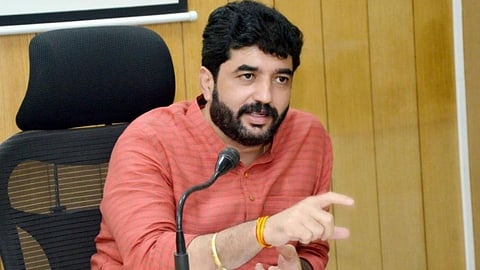

Pune: Nigerian scams are not new, as they have made rounds in the early 2000s as well. However, even as the modus operandi of such scams is common knowledge, innocent people still fall prey to fraudsters and end up parting with large sums of money believing that they will get a fortune in return.
In a recent turn of events, Pune Mayor Murlidhar Mohol was targeted by the fraudsters in this type of online scam.
A complaint will be lodged against the fraudsters who tried to hack the bank account of Pune Mayor Murlidhar Mohol through a fake e-mail id recently. The Pune Mayor received an e-mail on his official e-mail address on Monday. The sender of the e-mail was identified as Mehmood Burani who called himself a spokesperson of FGN ATM in the mail.
The e-mail reads, "We are sending this e-mail to confirm whether you have received the amount due as a foreign contractor. If the amount has not been received, reply to this mail." The e-mail also stated, "For cash transfer to 'Fund to ATM', you need to send your full name, contact number, passport or driver's license, mobile number."
Reacting on the same Murlidhar Mohol informed, "I received an e-mail on my official e-mail ID demanding the amount to be paid for the ATM as well as for the contractual terms. I found the mail suspicious and realised that this is a fraud. I informed the case to the office-bearers in the office and advised not to revert on the same. I have contacted the police officials of the Cyber Crime Branch, and an investigation is under process."
"I request all that one must be alert and should never reply or entertain such mischievous or fake e-mails," he appealed.
WHAT IS NIGERIAN SCAM
A Nigerian scam, also known as advance fee fraud, is a scheme in which a dispatcher needs help in simplifying the transfer of a sum of money, in the form of an e-mail. In return, the sender offers a commission -- a large amount, sometimes up to several million dollars depending on the apparent gullibility of the target. The scammers then request that money be sent to pay for some of the costs related to the transfer.
